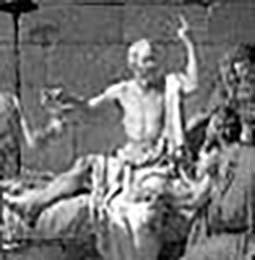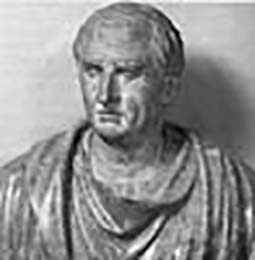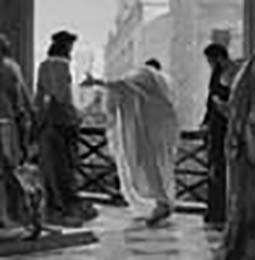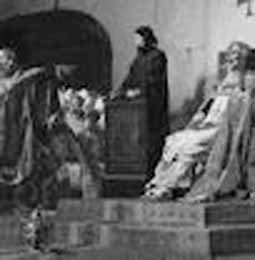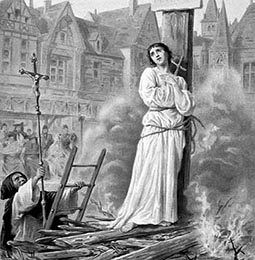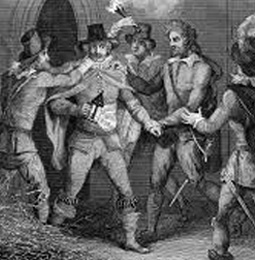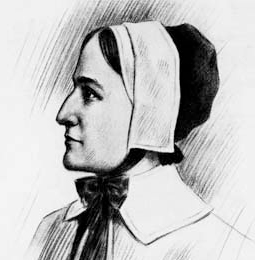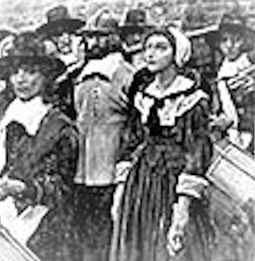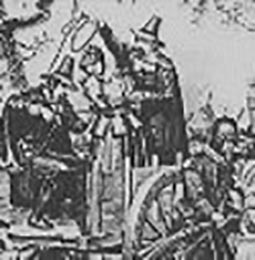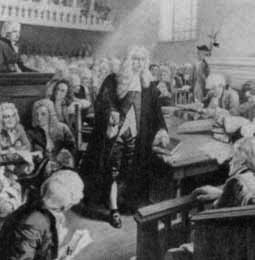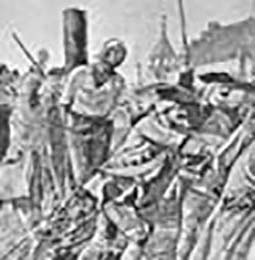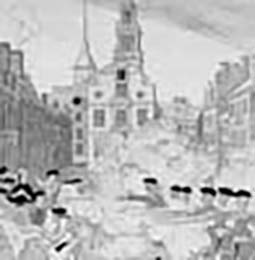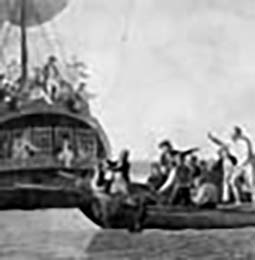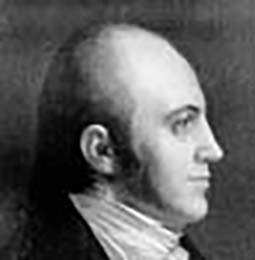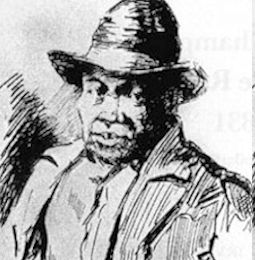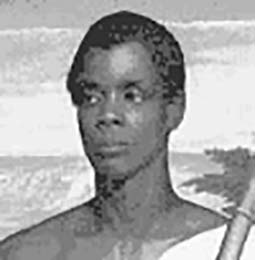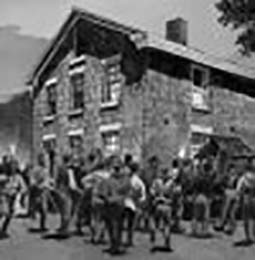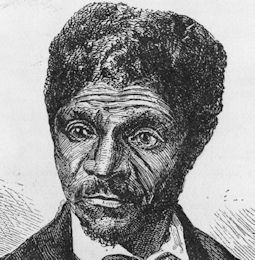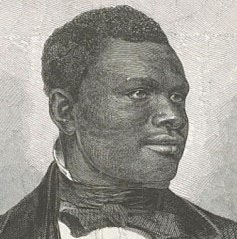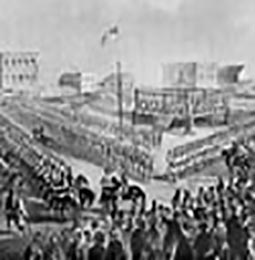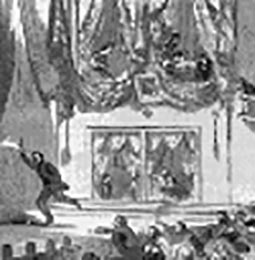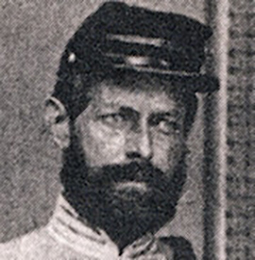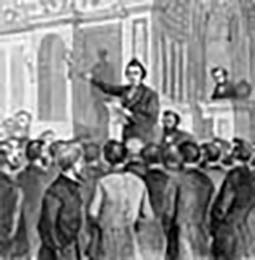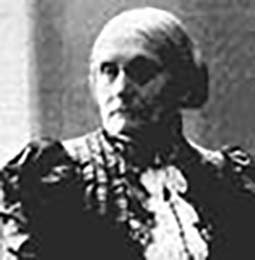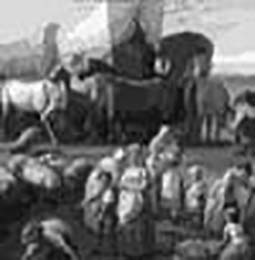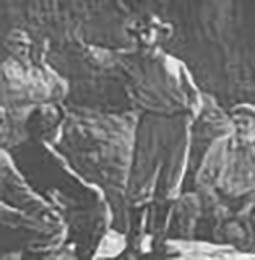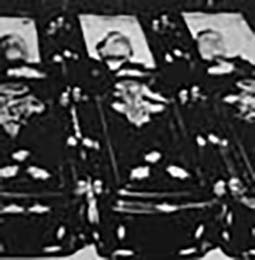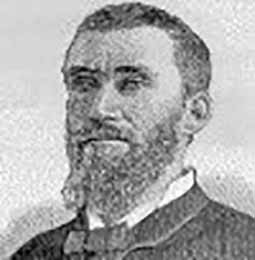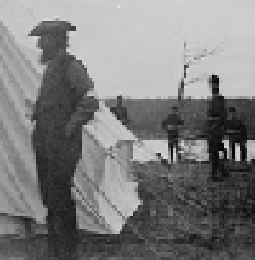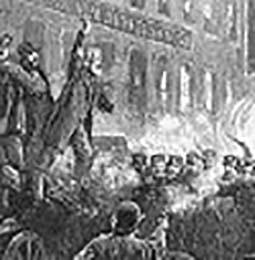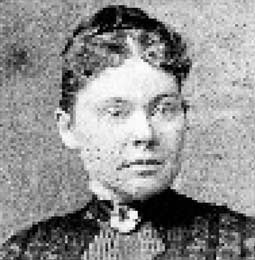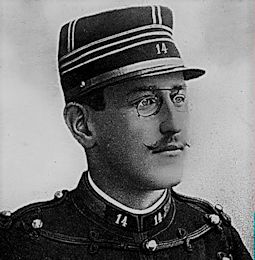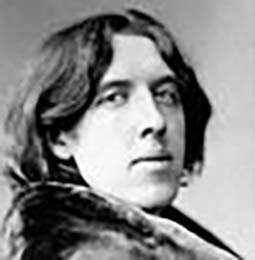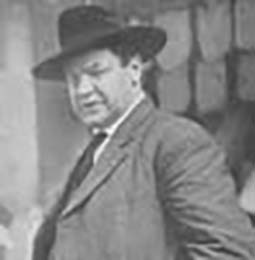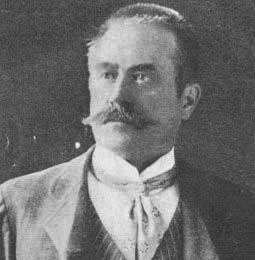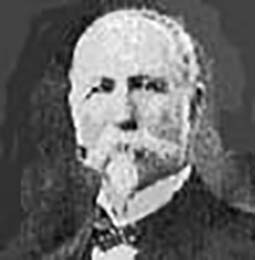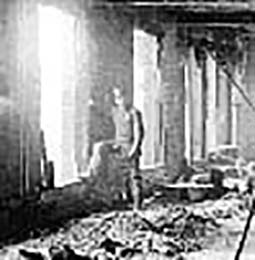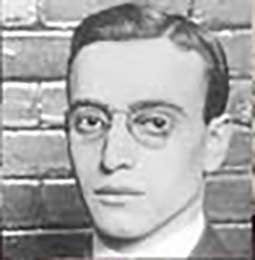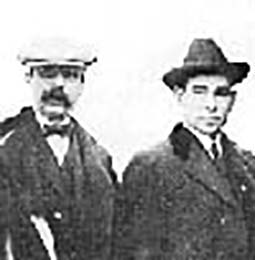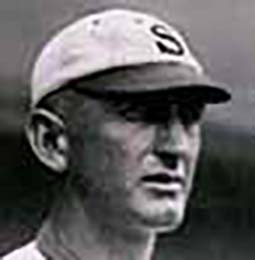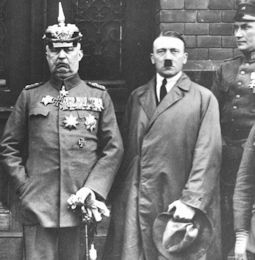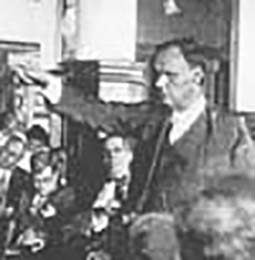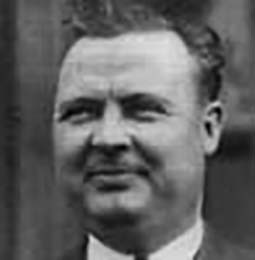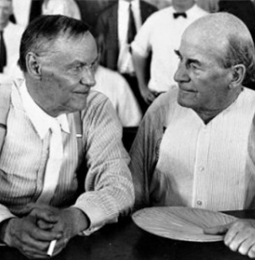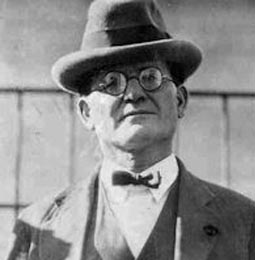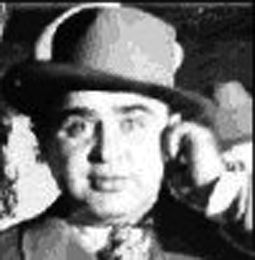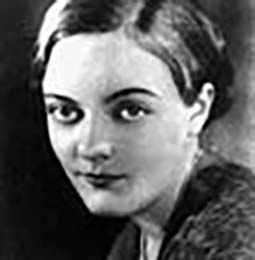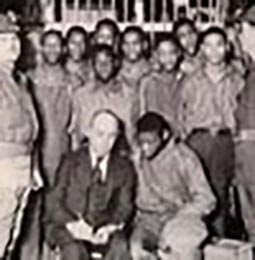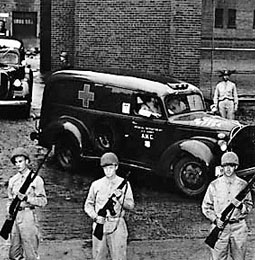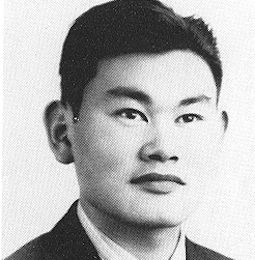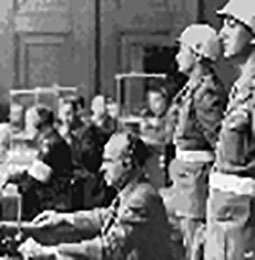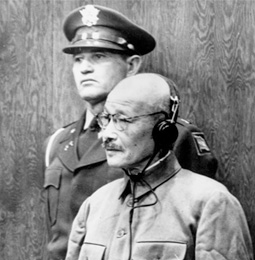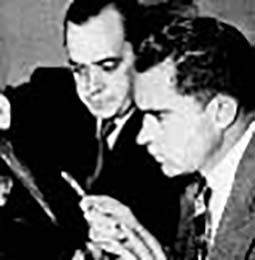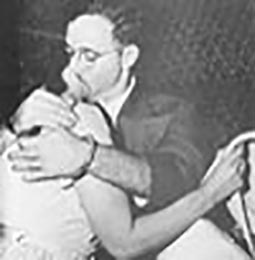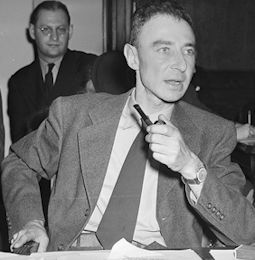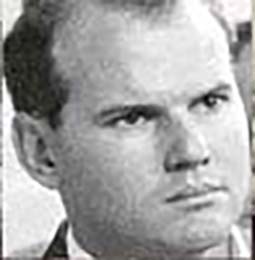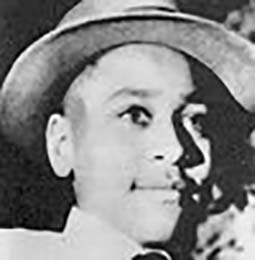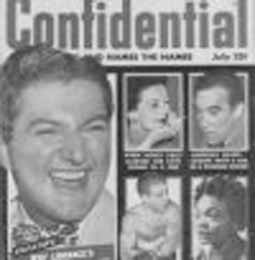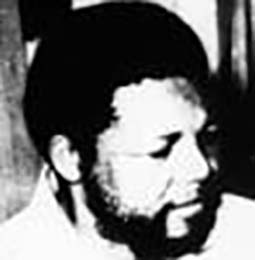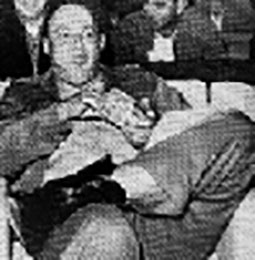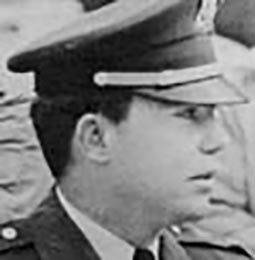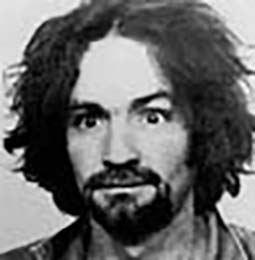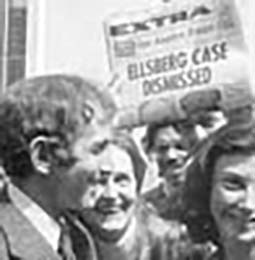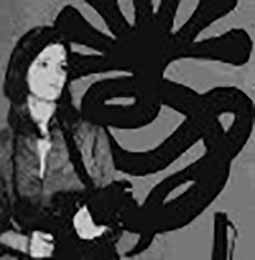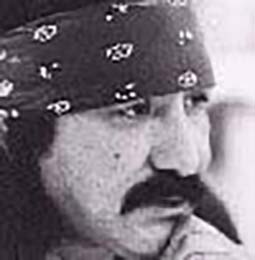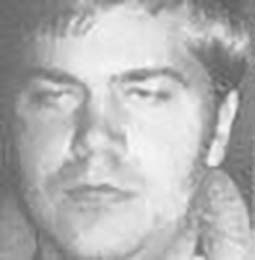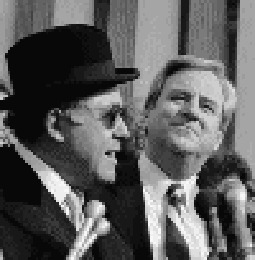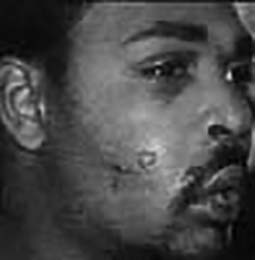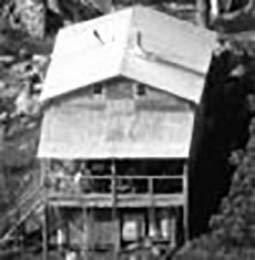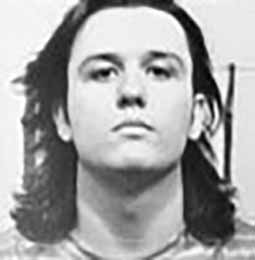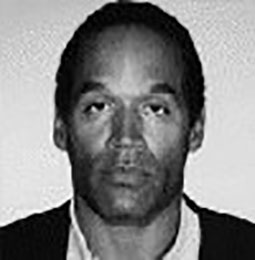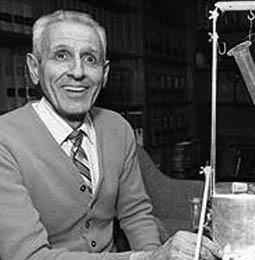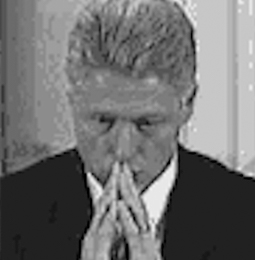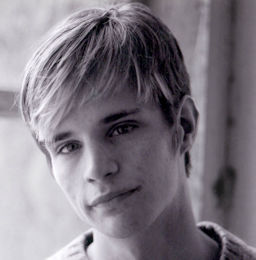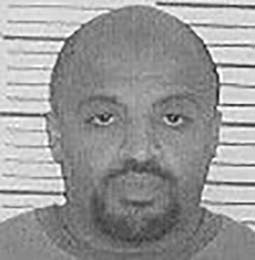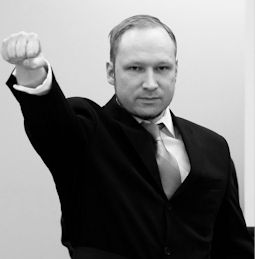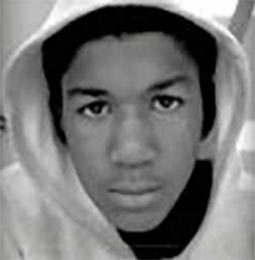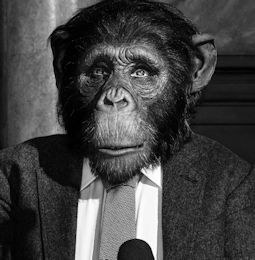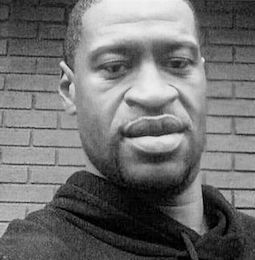Direct Examination by Bram Fischer:
Fischer: Had you good reason for this [carrying on the ANC illegally after it was banned]?
Mbeki: Yes. The ANC after a number of years, a number of decades, has been the vanguard of the struggle of the African
people for national liberation And it was something that I just couldn’t accept. At the time thousands of people looked up to the ANC to lead them in the struggle against the laws which were threatening practically every right that the African had enjoyed before. As I say, I just could not accept the fact that the government should destroy the ANC. I therefore continued to be a member of the ANC under conditions of illegality....
Fischer: Has the [white supremacist] policy [of the South African government] itself changed, apart from the name?
Mbeki: No. Apart from that, the leopard has not changed its colours at all. The position was very clearly expressed by the late Prime Minister, Mr. JG Strydom, when he said ‘die wit man moet altyd baas wees’ (the white man must always remain the boss).
Fischer: Has any one of the last three Prime Ministers including the present Prime Minister ever met any leading member of the African National Congress?
Mbeki: Not one of them.
Fischer: Talking about methods of protest. Since this government has been in power what has happened to the right of Africans to hold meetings or demonstrations or processions?
Mbeki: In the reserves (i.e. African occupied rural areas), since the early 5Os meetings have been banned except those that have the approval of the Native Commissioners. In an area like the Transkei, Proclamation 400, which was passed about four years ago to meet the specific situation, has become a permanent feature of the administration. In the urban areas it is virtually impossible to find a place to hold political meetings of Africans chiefs or headmen who do not approve of government policies have either been deposed or banished. I think that since the Nationalist Party came into power in 1948, no less than 133 chiefs have been banished to different areas where their language is not spoken, or where they couldn’t make a living....
Fischer: I think you worked for eight years in Port Elizabeth?
Mbeki: Yes, I worked for eight years in Port Elizabeth and during that time I was never able to live with my family.
Fischer: Why was that?
Mbeki: I was not allowed to rent a house because I had not qualified to be permanently resident in Port Elizabeth because I had not worked for one employer continuously for a period of ten years.
Fischer: So you were never able to bring your family to live with you?
Mbeki: For the eight years I was there I was never able to do so.
Fischer: Your case is not unique?
Mbeki: No, it is not unique. Not at all, because lots of other men who live in single men’s barracks lived there without their families.
Cross-examination by Percy Yutar:
Yutar: I think you will also agree that, despite the evil influences of the South African government, we have not got ritual murders in this country.
Mbeki: What would that explain in any case?
Yutar: Do you know that the South African Medical Research officials, apart from helping the Bantu in this country, have sent some of their serums to help the non-Europeans in other countries? Do you know about that?
Mbeki: I have heard about that.
Yutar: Do you know that if you present a balance sheet, you should present a true and fair account? Have you, when you fulminated against the South African government and its people, represented the other side—the benefits which the Bantu have in this country?
Mbeki: What benefits? What benefits have they been given? I am not aware of any benefits the Africans are getting from the South African government.
Yutar: Not aware at all? And yet millions try to remain here in this country?
Mbeki: That does not explain it.
Yutar: You have given your evidence here in a calm quiet voice. To make certain I was listening to the same person, I had your tape played back (the tape of a speech by Mbeki broadcast over the illegal Radio Liberation). You don’t always speak that way do you? You can raise your voice?
Mbeki: If I must raise it, yes.
Yutar: And you speak a little faster than you have spoken here?
Mbeki: If I must speak a little faster, I do.
Yutar: And not so sanctimoniously as you have tried to speak here?
Mbeki: That is your opinion.
Yutar: [Reading from an issue of the newspaper Spark:] ‘Beneath his quiet charm and gentle smile, a ruthless determination to reach his goal—the emancipation of his people.’ Is that a fair description of you?
Mbeki: I think so.
Yutar: A ruthless determination. And in some of your speeches you could be ruthless, not so? And in fact you were in speeches which you addressed when you attended meetings throughout the country. Do you deny that?
Mbeki: I spoke the truth and exposed what was the hardship of the Africans. If you call that ruthless—speaking the truth—then I was ruthless.
Yutar: No. I am just trying to convey, not the subject matter, but the way in which you put it across. You were not the gentle, quiet, sanctimonious human being that you are now showing in the witness box.
Mbeki: Well, that would have to be the opinion of whoever was listening to me.
Yutar: Which group [within South Africa's Communist Party] were you a member?
Mbeki: The Communist Party group.
Yutar: I know. Which group? I am asking you which group?
Mbeki: The Communist Party group, I say.
Yutar: But how many groups were there in Port Elizabeth?
Mbeki: I don’t know. I was only concerned with my group. That is the group I want.
Yutar: What was its name?
Mbeki: The Communist Party group has no name. It is not like a football club.
Yutar: And who were the members of your group?
Mbeki: That I am not prepared to say.
Yutar: You are not prepared to tell us? Why not?
Mbeki: Why should I do so? I am not prepared to incriminate anybody....
Yutar: Well, Mbeki, I will put it to you in very brief form. Four charges against you and you have replied to all of them. You have replied ‘yes’ to all of them. Can you tell his Lordship why you have pleaded not guilty to the four counts?
Mbeki: Yes. I did not plead guilty to the four counts for the simple reason, firstly, that I should come and explain from here under oath some of the reasons that led me to join Umkhonto we Sizwe. And secondly, for the simple reason that to plead guilty would to my mind indicate a sense of moral guilt to it. I do not accept that there is any moral guilt attached to my actions.
Yutar: Alright, let us forget about moral guilt. Having now admitted, after making some political speeches, that you were on the National High Command, have committed sabotage, that further acts of sabotage had been conspired to be committed, and you furthered the aim of communism, that you and your colleagues solicited money both here and abroad in order to advance these campaigns, do you now plead guilty?
Mbeki: I am not pleading guilty!
Yutar: No, you don’t. You don’t even admit you are legally guilty?
Mbeki: I have explained my position....






